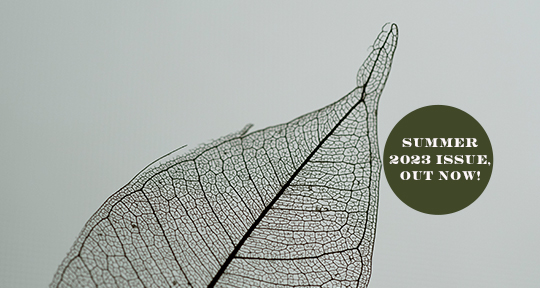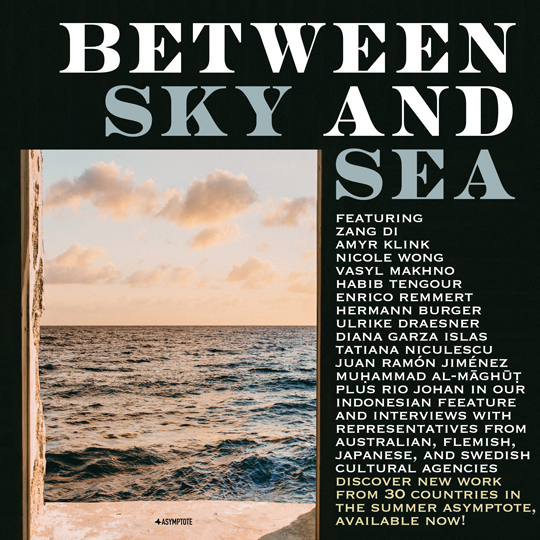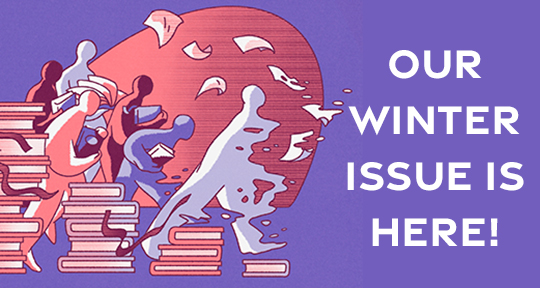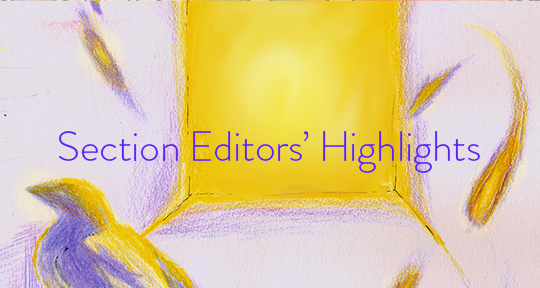Since its inception in 2019, Tkaronto/Toronto-based trace press has published “literature that illuminates, in complex, beautiful and thought-provoking ways, contemporary and historical experiences of conflict, war, displacement, exile, migration, the environment, labour, and resistance.” Re-emerging after a brief hiatus during the pandemic, their first anthology River in an Ocean: Essays on Translation (2023) assembles emergent and experienced feminist translators, scholars, and writers from Palestine to Uganda, from Indonesia to Kashmir—spotlighted by, among others, Khairani Barokka, Suneela Mubayi, Otoniya J. Okot Bitek, and Yasmine Haj. In the foreword, the decolonialist historian Françoise Vergès describes the vestiges of imperialism, the dominance of the languages of Euro-American colonisers, the myths of globalisation, and the “hegemony of national languages” inflicted by neocolonial nation-states. Having read and reviewed the anthology myself, I think of it as a complex re-mapping of literary hemispheres “twisting through the atrocities of literary empires and post-colonial capitalism.”
In this interview, I asked trace press’ founding editor Nuzhat Abbas, a Zanzibar-born writer and critic of postcolonial mobilities and gender studies, about the literary publishing house she has founded; how independent presses can stay true to a transnational, anti-imperialist and decolonial feminist ethos; and writings from her archipelagic birthplace in East Africa and the Indian Ocean.
Alton Melvar M Dapanas (AMMD): Having founded trace press, in what ways do the values of decoloniality, anti-imperialism, feminism, and anti-racism occur as concrete practices in translation and in publishing? And what is the opposite of that?
Nuzhat Abbas (NA): I prefer to pose such questions to my writers and translators—to inquire how they, in their practice, think through such challenges, especially in relation to localized tensions and displacements, both historic and geographical. For example, trace is located on a forcibly white-settled and renamed space where Indigenous and Black resistance and creativity continues to resist and respond to histories of profound violence and displacement. As racialized im/migrant-settlers working with non-European literatures and languages, how do we ‘translate’ and write toward Black and Indigenous readers in the Americas, and toward each other, as people from the global majority, scattered around the globe, displacing each of our certainties? This is a question for me, a beginning question, one that can only be answered in practice—and differently—by each of the books we make and the conversations that emerge. Building space for these kinds of ‘after-publication’ conversations is very much part of what I want to create with trace.












